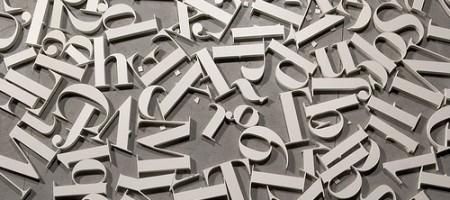1. The Differences between Digital History and Digital Humanities by Stephen Robertson
For the last nine months I’ve spent much of my time exploring digital history. Part of becoming director of RRCHNM involved familiarizing myself with areas of work about which I had only passing knowledge despite almost twenty years of reading, teaching and creating digital history. Moreover, preparing for the Center’s pending 20th anniversary required looking back at more than 100 projects created in two decades of work. It was against this backdrop that I read the most recent outbreak of debate about digital humanities provoked by the special issue of differences, “In the Shadow of the Digital Humanities” (vol.25, no. 1, 2014), and Adam Kirsch’s article in the May 2014 issue of The New Republic, “Technology is Taking Over English Departments: The False Promise of Digital Humanities.” From that perspective, what is striking is the almost complete absences of digital history in those accounts. Matthew Kirschenbaum and others do make room for it by emphasizing the plurality of digital humanities and Lisa Rhody brings the key digital history text – Dan Cohen and Roy Rosenzweig’s Digital History – into the conversation – but ‘dh’ here is clearly standing in for digital literary studies.
My first reaction was a desire to highlight how the absence of digital history produces an impoverished vision of what digital humanities is. On reflection, in the US at this particular moment, fighting to get inside the big tent of digital humanities does not seem the most productive response. Instead, more can be gained from taking the debate as an opportunity to emphasize what makes digital history different from digital literary studies and ‘dh.’
2. DH vs. DH, and Moretti’s War by Scott Paul McGinnis
With “The Differences between Digital History and Digital Humanities,” historian Stephen Robertson, who became the director of the Center for History and New Media last year, added to the slew of responses to the recent differences special issue “Shadows of the Digital Humanities,” which included deep criticisms as well as staunch defenses of the digital humanities, and Adam Kirsch’s troll-piece, “Technology is Taking Over English Departments: The False Promise of the Digital Humanities.” In similar terms to suggestions by Ryan Cordell (“On Ignoring Encoding“) and others that Kirsch (and Fish and Marche before him) unduly conflate digital humanities with digital applications in literary studies, especially those in English literature, Robertson suggests that we separate out what makes digital history distinct from digital literature, further suggesting that “DH” is (and ought to be) digital literature, and digital history is something separate from DH altogether. Should we have two different DH-es? One for history, and one for a humanities that is defined as primarily literature?
n.b. I intend this post to be a broad response to the recent controversies, and not just a critique of Robertson’s piece. I wholeheartedly endorse his basic goal of enhancing our understanding of what is digital history. That said, I think it is a bad idea to isolate digital history from the rest of DH. Here’s why…

